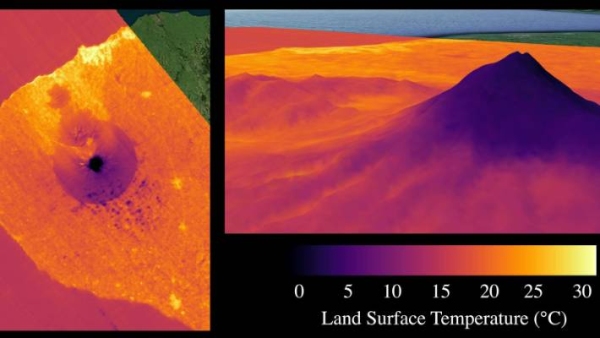New Zealand and NASA have partnered for their first international space mission, aiming to help protect the world's vulnerable ecosystems.
The Centre for Space Science Technology (CSST) is leading the Kiwi research contingent helping with NASA's mission. The research involves studying land-surface temperatures, including vegetation, to better understand how much water plants need and how they respond to stress. Researchers from NIWA, University of Waikato and Manaaki Whenua—Landcare Research will provide ground measurements from New Zealand.
NIWA is providing the measurements of water and carbon fluxes for the calibration and validation effort as well as accurate remote sensing flux information for New Zealand.
Dr Christian Zammit, a NIWA hydrologist, said being involved in the multinational project highlighted the depth of local science expertise and resources in New Zealand.
Zammit is working on a project called NZ Water Model-Hydrology that will enable people to accurately predict how much freshwater is available, where it has come from, and how quickly it moves through New Zealand catchments.
The NASA work would help to develop the model, he said. (Find out more about the NZ Water Model-Hydrology)
NASA Jet Propulsion Laboratory (JPL) scientist Dr Joshua Fisher said a refrigerator-sized thermal radiometer was installed on the International Space Station in July, where it would remain for at least 12 months.
The instrument captures images of areas like Mt Taranaki from the International Space Station. The instrument will capture temperature measurements of the land surface and send the data back down to Earth.
Dr Joshua Fisher says, “The CSST and New Zealand researchers have established an important network of ecosystem measurements across a diverse landscape. This is important not only for understanding New Zealand's rich ecology, but also for helping NASA to calibrate and validate similar measurements from space".
The information New Zealand researchers are gathering could be used to protect the world's vulnerable ecosystems.


